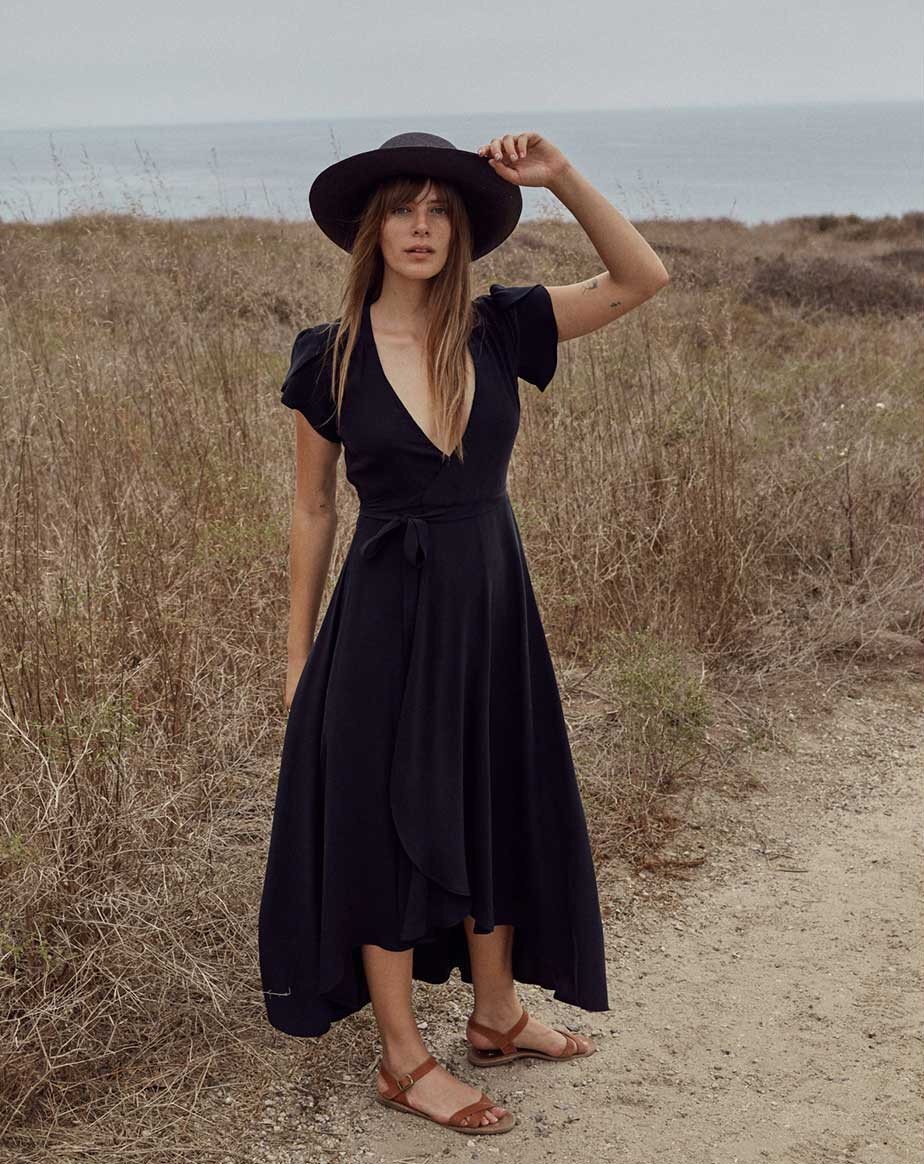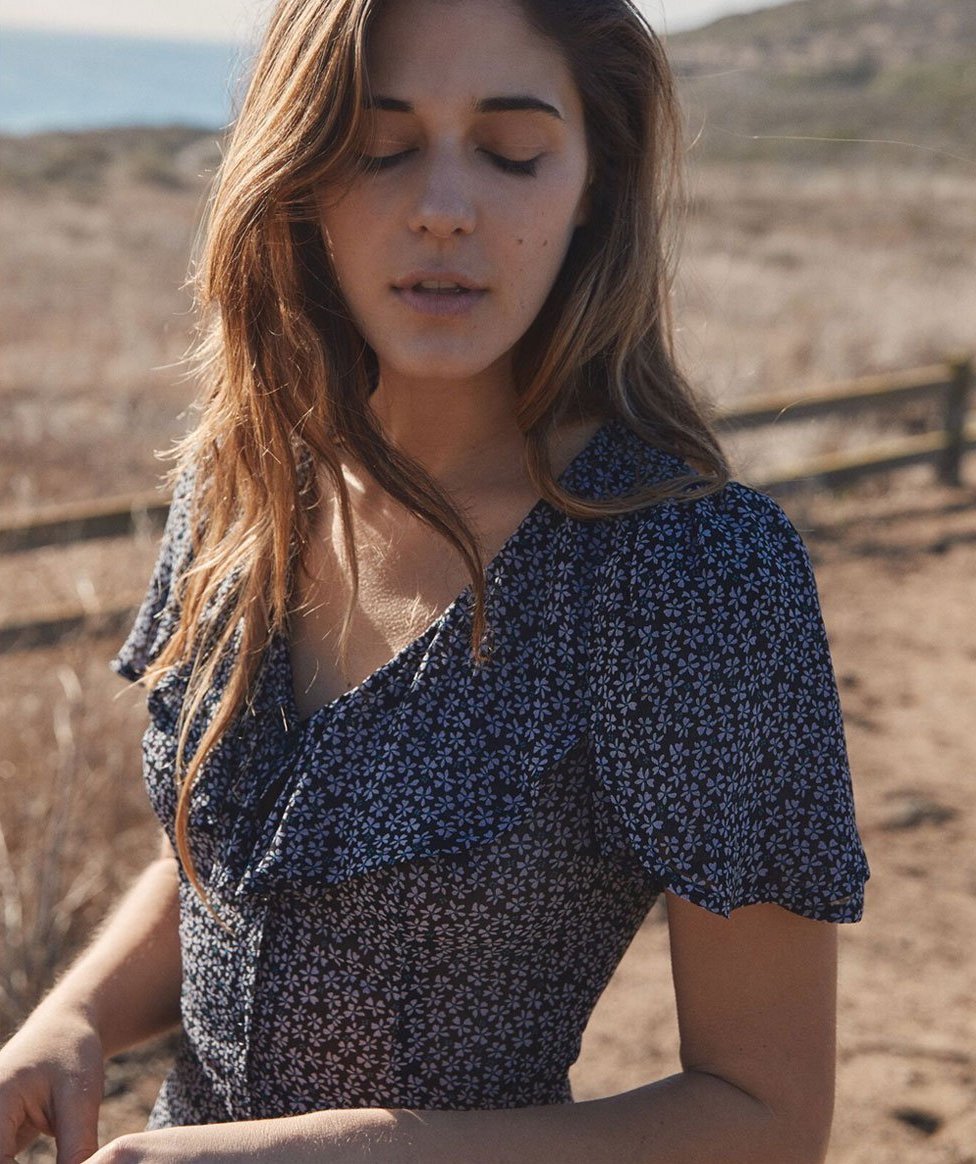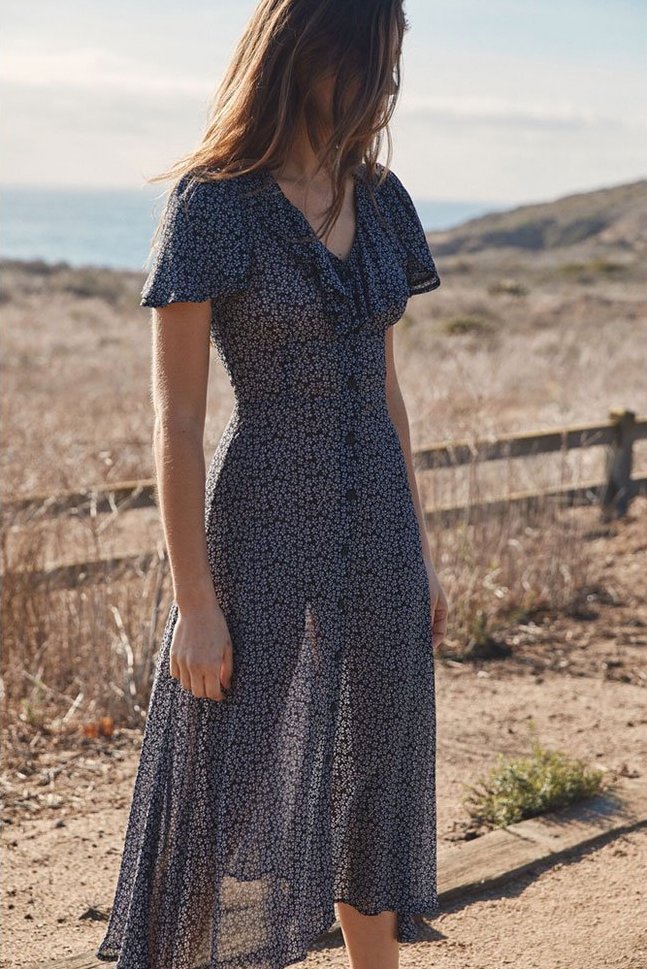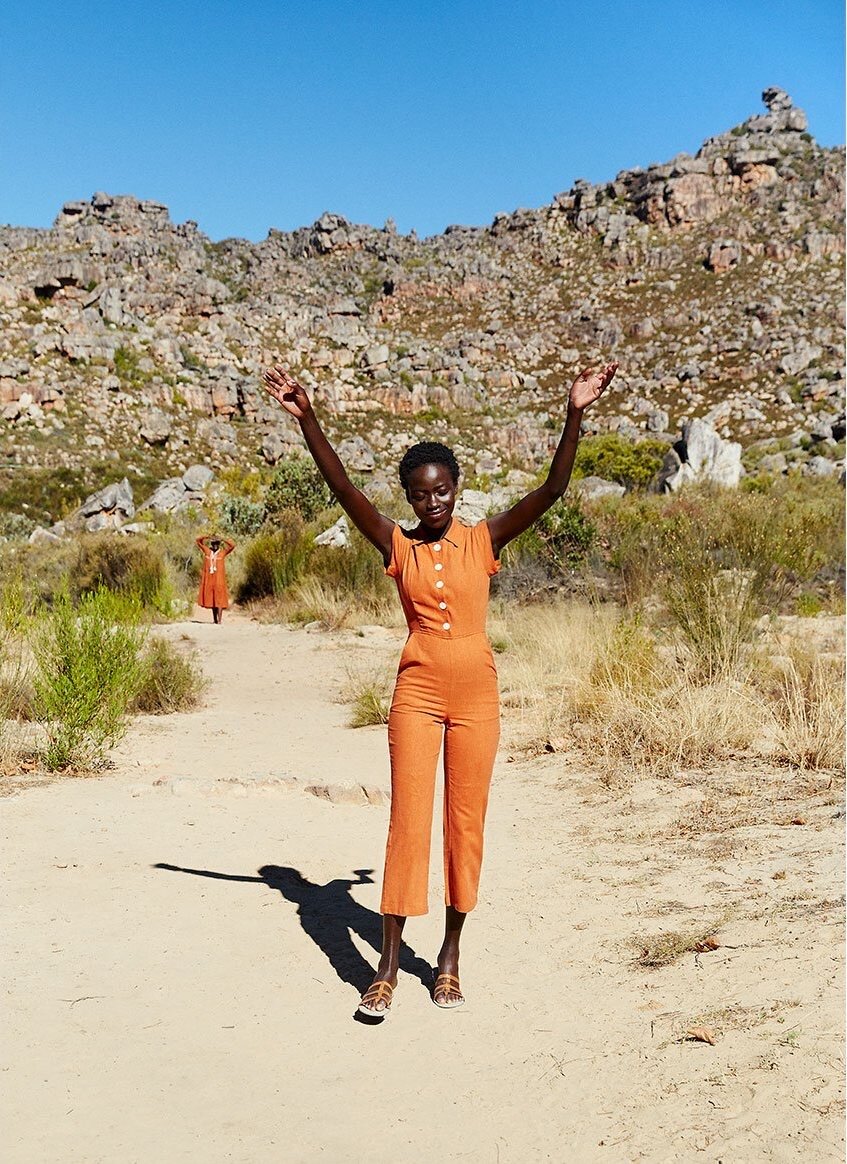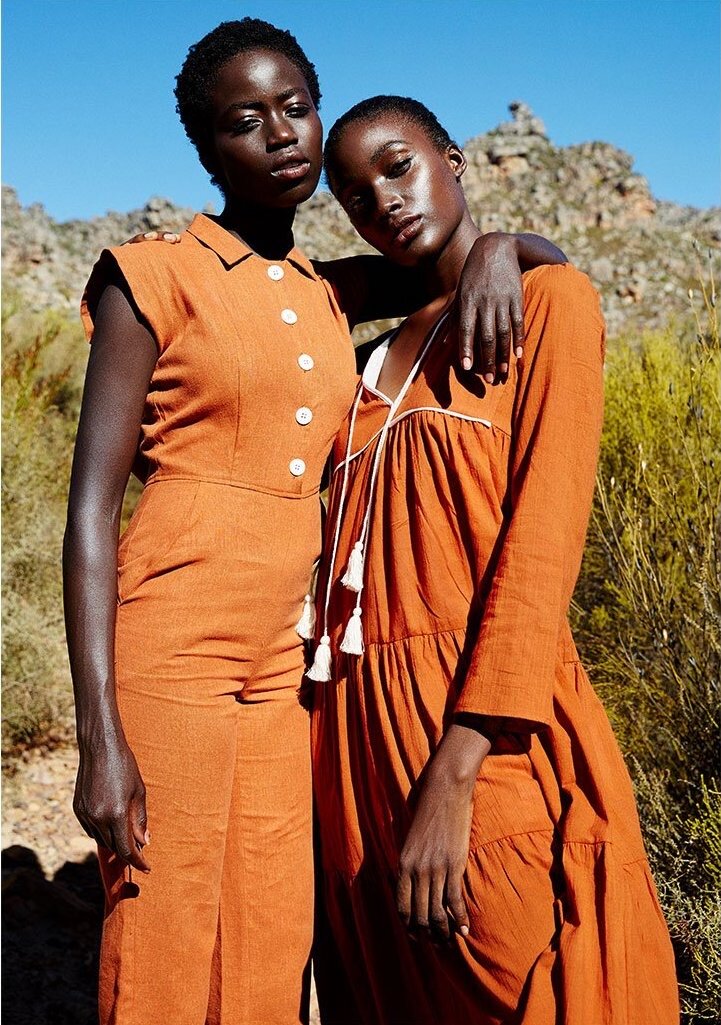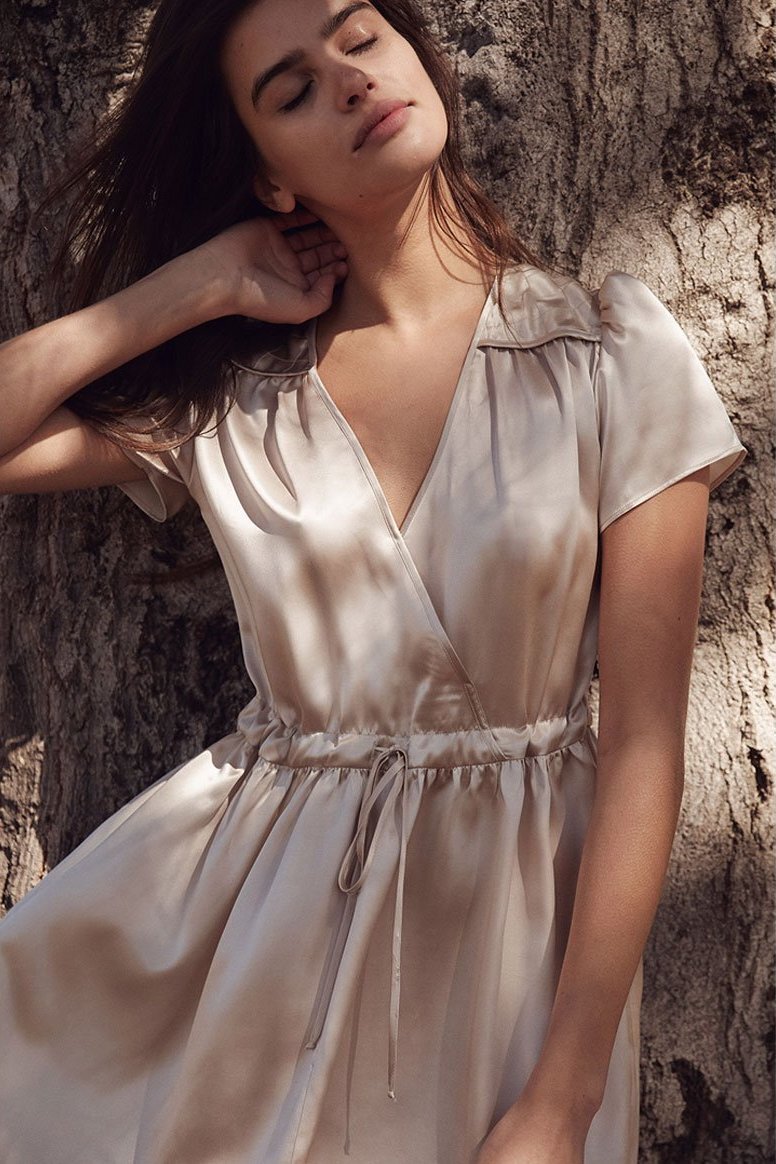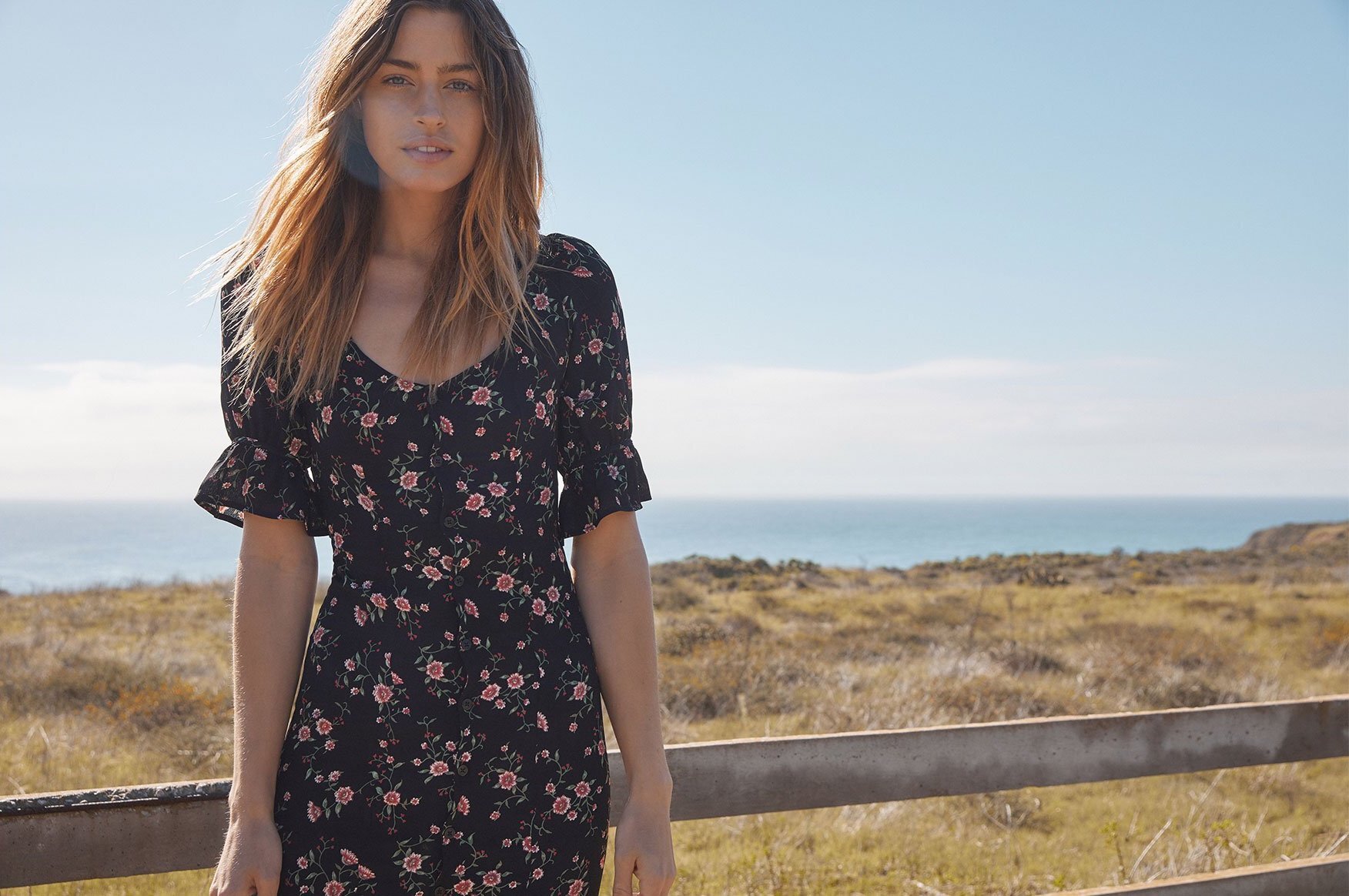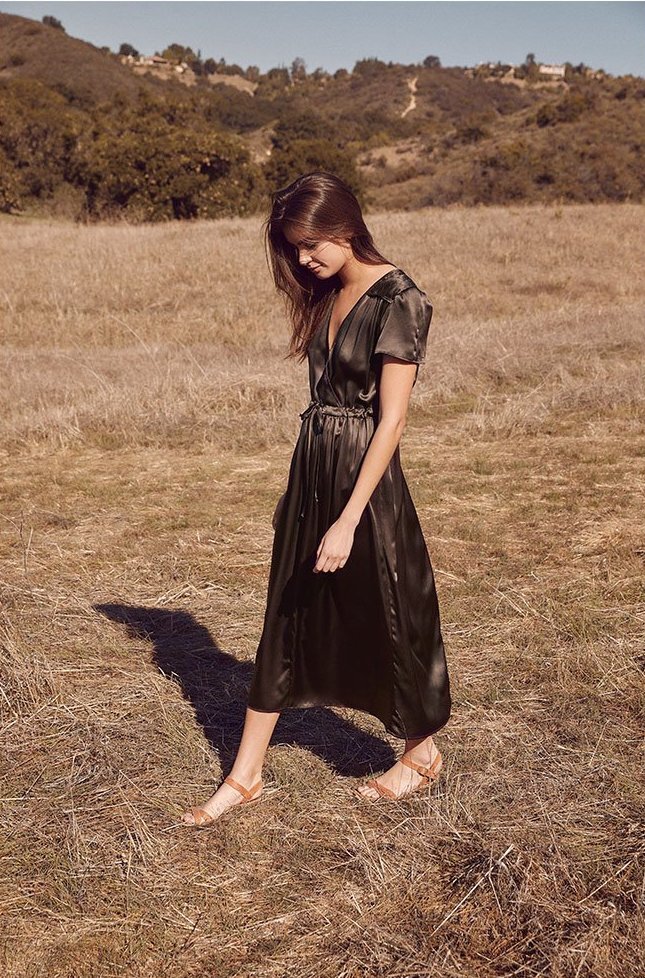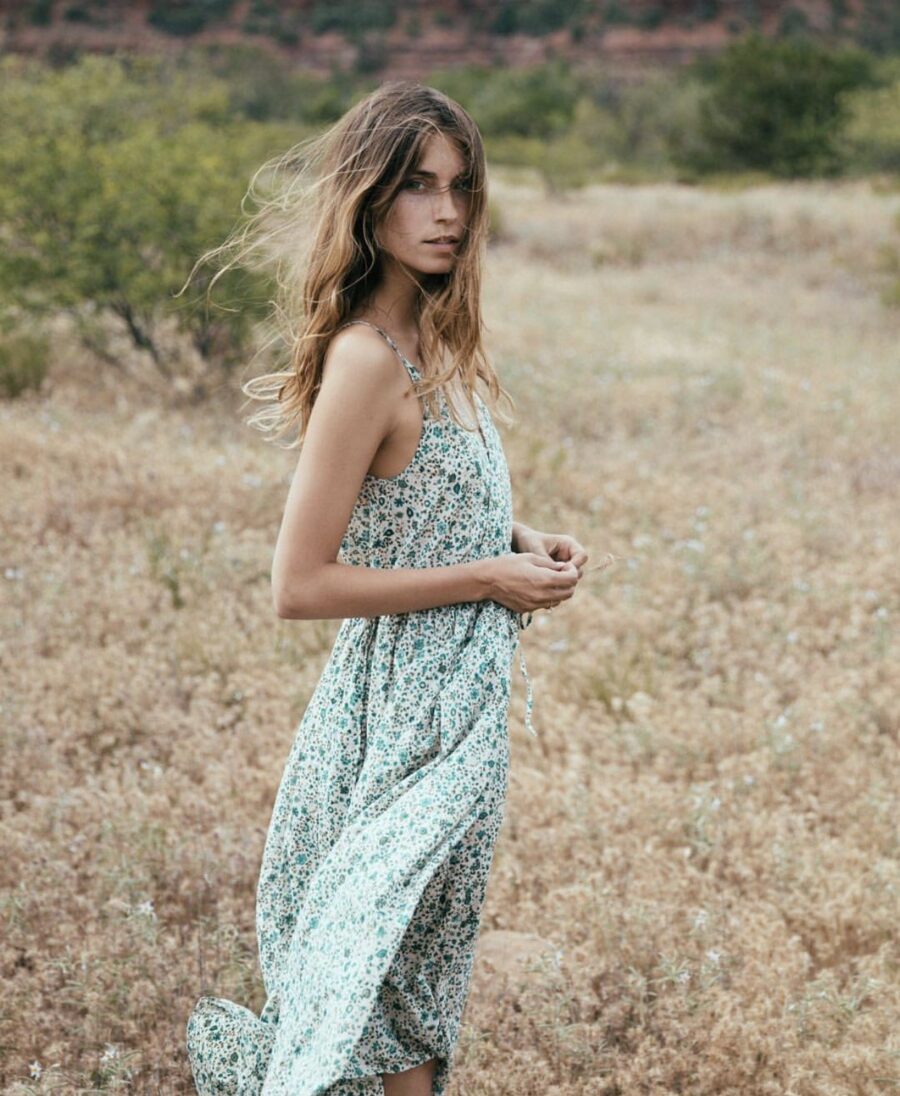
Timeless Dresses Made From Deadstock: Interview With Christy Dawn, Founder Of Christy Dawn Designs
Meet Christy Dawn, Founder of Christy Dawn Designs
Christy Dawn grew up in a small California town with timeless style and a mother who would thrift shop for her family. Learning to alter her own dresses launched a life of fashion for the model-turned-designer and fashion entrepreneur. She and her husband launched Christy Dawn Designs to bring her vintage-inspired aesthetic to women who wanted ethical fashion. We connected with Christy to hear about her commitment to socially and environmentally responsible fashion, the inspiration behind her line, and how motherhood has motivated her even when margins are tight.
Before you were an entrepreneur, you were a model. Gracing runways around the world you had built a reputation for yourself before you decided to take the leap. How did your first career inspire your second?
As a model, I got to peek behind the curtain of so many brands. It was an incredible opportunity to learn firsthand why some brands were successful and some weren’t. All the while, I felt like there was no one making the dresses that I wanted to wear. Modeling served as my fashion education.
What was the most surprising thing about your transition from modeling to entrepreneurship?
Well, when we started Christy Dawn, I certainly didn’t anticipate how much work there would be. It’s easy to romanticize the photo-shoots and the designing, but having a clothing company requires so much more than that. Thank goodness I didn’t start this thing alone. My husband, Aras, founded Christy Dawn with me, and he has taken on the bulk of the administrative side of the company. Having him work behind the scenes has really given me the freedom to focus on the creative parts of the business.
The sustainable and responsible values you’ve built into the business are reflected in the organic shapes and curves of your lines. What inspires your vintage aesthetic? What did you find yourself searching for before launching your own brand?
I’ve always been a fan of one-of-a-kind vintage dresses. The problem with vintage is that they are rarely the right size and they usually have tears and stains. Our limited edition dresses provide a similar level of exclusivity and uniqueness that vintage offers.
I grew up in Placerville, California, where little has changed in the past hundred years. The town is timeless. It’s hard to quantify just how much the impact my hometown has inevitably had on me, but I certainly think its informed a lot of my aesthetic.
And why were you committed to building an ethical ethos into the culture of your company?
“I think we all have an obligation to look at what we are doing and ask ourselves, how can I be doing this more sustainably?”
With the planet’s population soaring and the environment getting torn to shreds, I think we all have an obligation to look at what we are doing and ask ourselves, how can I be doing this more sustainably? With Christy Dawn, we try to optimize for longevity, and we don’t limit “sustainability” to solely environmental considerations. We look at the human impact of what we are doing. It would be crazy to think that having our dresses made in factories where people are paid inhumane wages would be sustainable. It’s certainly not sustainable for the people in those jobs. That’s why we pay our coveted dressmakers living wages, offer health benefits, and paid vacations.
Use of deadstock has been integral to reducing your environmental impact. What is What is deadstock, how has it shaped your line and impacted your business?
Deadstock fabrics are the left over fabrics from other fashion houses who overestimated their needs. Traditionally, brands would hold on to their excess fabrics for a few seasons and then send them to the landfills. We rescue these deadstock fabrics before they are thrown away and we turn them into dresses. When using deadstock fabric we are limited in the number of dresses we can make, because there isn’t an unlimited amount of any one fabric. But making limited numbers of each dress gives us an advantage in that women know they are getting something special. We are never going to be able to create the economies of scale that fast fashion houses can, so we focus instead on making dresses that will stand the test of time, both in design and in fabrication.
“We are never going to be able to create the economies of scale that fast fashion houses can, so we focus instead on making dresses that will stand the test of time, both in design and in fabrication.”
Tell us more about the social impact of your production process—how are local artisans and American made clothing impacting the economy?
The landfills have enough fast fashion pieces to last a lifetime. We want our customers to have dresses that will last, dresses they can pass down to their daughters and granddaughters. So when we are making our line we opt for higher construction methods, we quite literally spare no expense. In order to ensure quality, we attract the best dressmakers in the city and we pay our people living-wages, offer health benefits as well as paid vacations. We are lucky to have them and happy to pay them well.
Christy Dawn has an incredibly loyal customer base. What has been most challenging about building a socially and environmentally responsible business?
“I see my 3 year old son and I realize that no matter how much is in my bank account, when I pass away the most valuable thing I can leave him is a healthy planet, and a society where people treat each other well.”
That’s a great question. I think the hardest part of building an environmentally responsible business has been overcoming my own feelings of want and lack. It’s easy to talk a big game about the environment and social causes when you’re not risking any personal gain. But when it’s your own company and you are staring at a profit and loss sheet, those choices become much harder to make. Because of our environmental and social practices, our margins are much smaller than a traditional fashion house. And there are certainly moments when I have second thoughts about our choices. But then I look at the smiling faces in our factory and I know that it’s worth it. Or I get home and I see my 3 year old son and I realize that no matter how much is in my bank account, when I pass away the most valuable thing I can leave him is a healthy planet, and a society where people treat each other well.
In what other ways has motherhood influenced entrepreneurship? Has loving a little one and being more intimately connected to the next generation had an impact on your commitment to sustainability in any way?
I birthed River just a few months after we launched Christy Dawn. I feel like I am raising two babies. It’s interesting to see their development, it’s strangely parallel. River started pre-school this year, so there’s a large chunk of the day where he’s in someone else’s caring hands. And similarly this past year we started hiring more staff, giving more and more responsibility to people other than myself and Aras. They say it takes a village to raise a child, and I’d suggest it takes a village to grow a business too!
Instagram
Facebook
Kassia Binkowski is a Contributing Editor at The Good Trade and the Founder of One K Creative. She grew up in Madison, WI and traveled her way around the world to Boulder, CO which she now calls home. Nestled against the Rocky Mountains, Kassia supports innovative organizations from Colorado to Kathmandu tell their stories of social change through writing, photography, and design. Kassia is an eternal optimist and forever a backroad wanderer.
